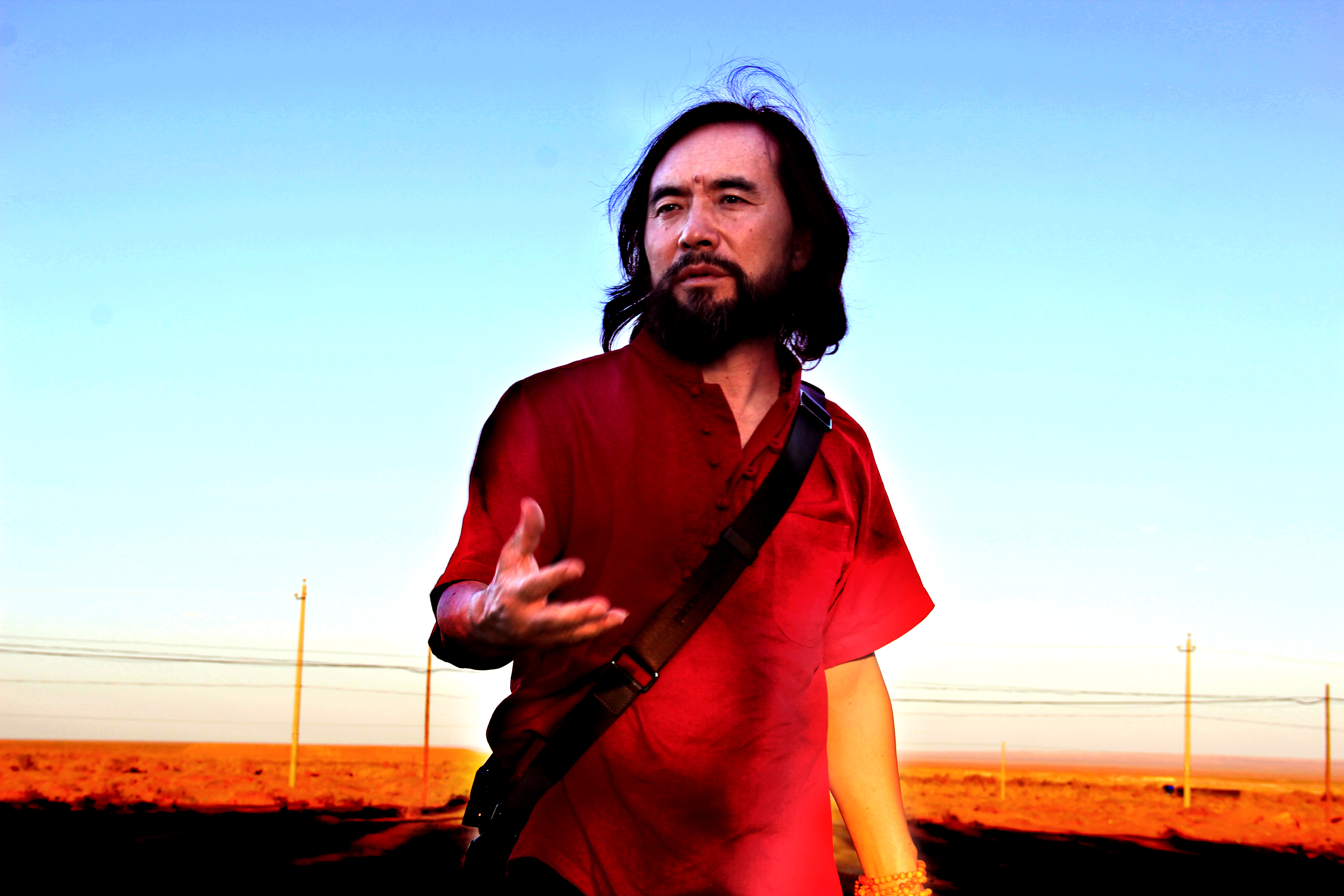
Preserve the pure awareness of your brain, and make sure your mind is always there at all times. At every moment you must clearly understand that there is no way to change the past, and that everything in the future is built on the foundation of every moment here and now.You just have to do the tasks at hand with a peaceful mind, and listen to every sound that resonates from the inner mind, but you must not take these as directions you must obey.
许多时候,心决定你眼前的境,各种境界的显现都源自你的心。快乐的时候,你觉得阳光明媚,万物灿然;不快乐的时候,感觉一切都很讨厌,小鸟本来在为你唱歌,你却拿了一把弹弓打它,说它吵了你。有一首诗这样写道:“打起黄莺儿,莫使枝上啼。啼时惊妾梦,不得到辽西。”说的就是这种情况。在那相思的女子心中,美妙的小鸟叫声,也成了搅醒她美梦的讨厌的声音。
Many times your mind decides the scene that appears before your eyes, and the appearance of every scene originates from your mind. When you are happy, you feel that the sunlight is bright and beautiful, and everything is sparkling. When you are not happy, you feel that everything is very disgusting, and when a little bird is actually singing a song for you, you take a slingshot and shoot at it, saying the bird was making noise to bother you. There is a poem that goes like this:
Hit out at the oriole,
Don’t let it twitter on the branch.
When it warbles, it startles the concubine from her dreams,
And she cannot reach western Liaoning.
What the poem is speaking of is this kind of situation. In the mind of that lovelorn woman, when the beautiful bird was calling, it became an irritating sound that woke her up from her beautiful dream.
所以说,你有什么样的心,就会看到什么样的世界。你的看法是世界的真相吗?是,也不是。对你来说,是,因为它存在于你某时某刻的想法当中;对于世界来说,不一定是,因为每个人眼里的世界都不一样,每个人的想法本身也不断在变化。某个朋友曾经说过,他认为世界上最后一位圣人是曾国藩,但是我告诉他,曾国藩杀过许多人,百姓都叫他“曾剃头”,于是他从此不再认为曾国藩是圣人。那么,什么才是世界的真相呢?是流动的水,是分秒生灭的细胞,是变化,是空。明白世界的本质为空,并不是说我们的一切行为都没有意义,更不代表我们应该抛弃一切,什么都不干。而是意味着,我们应该并且能够以经历梦境的心态来体验人生。
Therefore we say, whatever kind of mind you have, you will see that kind of world. Is your view of it the true characteristic of the world? It is and it isn’t. For you, it is, because it exists in how you see it at a certain moment in time. For the world, it is not necessarily so, because the world is not the same in everyone’s eyes, and everyone’s way of looking at it is itself constantly changing. A certain friend once said that he though the last sage in the world was [the Confucian statesman and scholar] Zeng Guofan [1811-1872], but I told him that Zeng Guofan had killed many people, and the common folk all called him Shaven-Headed Zeng. After this, my fried no longer regarded Zeng Guofan as a sage. So then, what is the true characteristic of the world? It is flowing water, it is cells that are born and die off in seconds, it is change, it is emptiness. Understanding that the fundamental substance of the world is emptiness is not to say that all our actions are meaningless, nor does it signify that we must abandon everything, and do nothing. Rather, it implies that we must and we can experience human life with the mental attitude that we are experiencing a dream.
举个例子,既然我明知世事无常,也能独自享受那清净之乐,为什么还要写这本书?为什么还要说这么多话?为什么我不像隐士们那样躲在山里,或者干脆回家种地呢?因为我知道,许多人都因为不明白世界的真相而活得非常痛苦,我宁愿将须臾生命用于效仿佛陀、孔子等古代贤圣,做一些有益于社会的事情,说一些有益于社会的话,在有限人生中创造一种真正的价值。当然,社会能不能因此而受益,我只能随缘。这就是佛家所说的“顺世”。
Let’s take an example. Since I know that worldly things are impermanent, and I can experience the bliss of that purity by myself, why do I still have to write this book? Why do I still have to say so many things? Why don’t I hide in the mountains like a hermit, or simply go home and grow crops? It is because I know that many people are living very painful lives because they do not understand the true characteristic of the world, and I would rather take my momentary life and use it to follow the example of the Buddha and of Confucius and the other sages of ancient times, and do something that benefits society, and say something that benefits society, and within this limited human lifetime, build something of true value. Of course, society may or may not be able to benefit from this, and all I can do is adapt to circumstances. This is what Buddhism calls “going along with the world.”
好多人以为佛家的顺世就是逆来顺受,事实不是这样的。佛家提倡顺世,是建议人们在全盘接纳自己的命运——无论好坏——的基础上,为自己做出智慧的抉择,既不要忘乎所以或者怨天尤人,也不要让瞬息万变的世界改变自己的明白与快乐。
Many people think that the Buddhist notion of going along with the world means submitting to adversity, but in fact it is not so. When Buddhists propose going along with the world, they are recommending that people, on the basis of accepting their own fates in life as a whole, no matter whether good or bad, make the decision for themselves to choose wisdom. They must not forget the reasons why, or blame things on everyone else, and they must not let the world that is changing a thousand times in the blink of an eye change their own clear understanding and happiness.
什么是真正的智慧?怎样去判断自己做出了智慧的抉择,还是消极逃避或者冲动妄为呢?佛家认为,如果你明白了真心,并且能在生命的每一个刹那都以真心做事,没有一丝迷惑,没有一丝束缚,那么你就是真正的智者,你的一举一动就是智慧的抉择。
What is true wisdom? How can you judge whether you have chosen wisdom, or passive escapism, or impulsive false action? Buddhism recognizes that if you have clearly understood the true mind, and you can use the true mind to do things at every moment, and you have no delusions at all, and no bonds at all, then you are a genuine person of wisdom, and you are choosing wisdom in every move you make.
那么,怎样才能停止妄想,又如何察知自己是否在真心状态呢?
So then, how can we put a stop to false thinking, and how can we know whether or not we are in the state of true mind?
经典中说过,停止妄念的同时就会进入真心状态,而停止妄念的前提,是你必须专注于眼前的事情,保持清醒,时时观察自己的内心世界,也就是我们常说的“生起警觉”、“保持觉性”。因为,你只有对自己的内心状态了如指掌,才知道自己是不是又在胡思乱想,然后才谈得上止息妄念。
In the sutras it has been said that at the same time we stop false thoughts, we can enter the state of true mind. The prerequisite for stopping false thoughts is that you must focus your attention on the things in front of you, and preserve pure wakefulness, and constantly observe the world of your own inner mind. This is also what we always speak of as “giving rise to alert awareness” and “maintaining the enlightened inherent nature.” This is because it is only when you are totally aware of the state of your inner mind, that you know whether or not you are engaged in chaotic thoughts, and only then can you speak of stopping false thoughts.
假如你发现自己生起了妄念,又该怎么处理呢?你不要用另一个念头,比如说“不要胡思乱想”这样的暗示去压制它,你只管做自己该做的事情,把那念头当成过路的客人。你对它的到来一清二楚,但是你不跟它攀谈,更不跟它套近乎,你只是静静地目送它离开。“目送归鸿,手挥五弦,俯仰自得,游心太玄”,任由念头自来自去。这样,它就不会对你的心产生干扰,你也不会因为想把一个浪头按住而激起更多的波浪。也就是说,你就不会因为对真妄的分别太过强烈,反而干扰了自己内心的宁静。
If you discover yourself giving rise to false thoughts, how should you handle it? You should not use another thought, a hint like saying “I must not engage in chaotic thoughts,” to try to repress them. Just do the things you must do, and treat those thoughts as passersby. You clearly perceive them coming, but you do not start chatting with them, much less curry favor with them: you just quietly watch them go. “You watch the swans go, hand strumming the five strings, content wherever you are, the wandering mind dark and mysterious.” You let the thoughts come and go by themselves. This way, they will not create any disturbances for your mind, and you will not stir up even more waves because you want to suppress one wave. This also means that you will not disturb the tranquility of your own inner mind by making overly vehement distinctions between true and false.
我举个例子:你正在写某个项目的策划方案,因为需要借鉴类似案例,所以上网搜索相关信息。但是,搜索信息时你看到了一些自己感兴趣的新闻,就停下手头上的工作,浏览起网页来。浏览网页时,你又想起自己要买个什么东西,于是登录了购物网站。左顾右盼了老半天之后你才发现:唉,我的方案还没完成!你一看表,原来已经过去好几个小时了,为此你陷入自责当中……
I’ll give you an example. You are writing a certain plan, and because you need to refer to similar cases, you go online and look for related information. But as you are searching for information, you see some news you feel is interesting, and so you put aside the job at hand, and browse through some web pages. While you are browsing through the web pages, you also begin to think of something you want to buy, and so you log into a shopping website, and after spending some time there you realize, hey, my plan is still not finished yet! You look at your watch, and actually several hours have gone by, and you fall into blaming yourself for this…

为什么会这样呢?因为你被“我想看新闻”的念头所牵引了,一直跟着它和许多它所衍生出的念头,越走越远,完全忘记了自己正在做什么事情,当然也忘记了事情的重要性。要是你当初能让那念头自来自去,不去迎合,也不去驱逐,那么接下来一连串的事情都不会发生。所以说,对待妄念,最好的方法就是不要跟着它走,做到“念来无执,念去不随”。
Why can it be like this? Because you were dragged off by the thought “I want to read the news,” and you kept on following this thought and the many other thoughts that this thought spawned, and went further and further, and completely forgot what you had been doing, and of course you also forgot the importance of the task. If you could have let that thought come and go by itself at the start, without going along with it, and also without driving it off, then the whole chain of events that came next would not have happened. This is why we say that the best method for dealing with false thoughts is to not follow them off, and manage it so that “when thoughts come you do not cling to them, and when thoughts go you do not follow them.”
如果你从来没有观察过自己的内心世界,甚至不太清楚具体该如何“观察”,不如就从留意自己的念头做起。保持头脑的清醒,任何时候都不要心不在焉,每时每刻都要明白,过去无法改变,未来的一切又建立在每一个当下的基础之上。你只管安心做好手头的事情,注意倾听内心响起的每一个声音,不要把它们当成必须去遵守的指令。但是,这种倾听也不能过于刻意,假如太过刻意的话,它就会变成另外的一种妄念。注意,倾听是为了不跟随,而不是为了以一种妄念压制另一种妄念,更不是为了形成一种新的对立。
If you have never observed the world of your inner mind, and you are not too clear about how specifically you must “observe” it, it is best to start by paying attention to your thoughts. Preserve the pure awareness of your brain, and make sure your mind is always there at all times. At every moment you must clearly understand that there is no way to change the past, and that everything in the future is built on the foundation of every moment here and now. You just have to do the tasks at hand with a peaceful mind, and listen to every sound that resonates from the inner mind, but you must not take these as directions you must obey. But this kind of listening cannot be too deliberate. If it is too deliberate, it will become another false thought. Paying attention and listening is done in order not to follow the false thoughts – not in order to take one false thought to repress another false thought, and not in order to create a new dualism.
可是,为什么我们要留意妄念,而不直接去认知真心呢?因为,对于“观察”的初学者来说,这也许会有一点困难。真心是超越概念的,所以你很难通过学习概念来认知它。即使某几个瞬间你正处在真心状态,恐怕你也不敢相信,或者不能认知。幸好,真心与妄心是一体的两面,妄心止息,显露出的就必然是真心。
But why is it that we must pay attention to false thoughts, and not directly recognize the true mind? It is because, for people who are first learning “observing,” there may be some difficulty here too. The true mind is something that transcends concepts, so it is very hard for you to recognize it by learning concepts. Even if you are in the state of true mind for a few moments, probably you will still not dare to believe it, or else you will not be able to recognize it. Luckily the true mind and the false mind are two faces of a single essence, and when the false mind stops, what appears must be the true mind.










